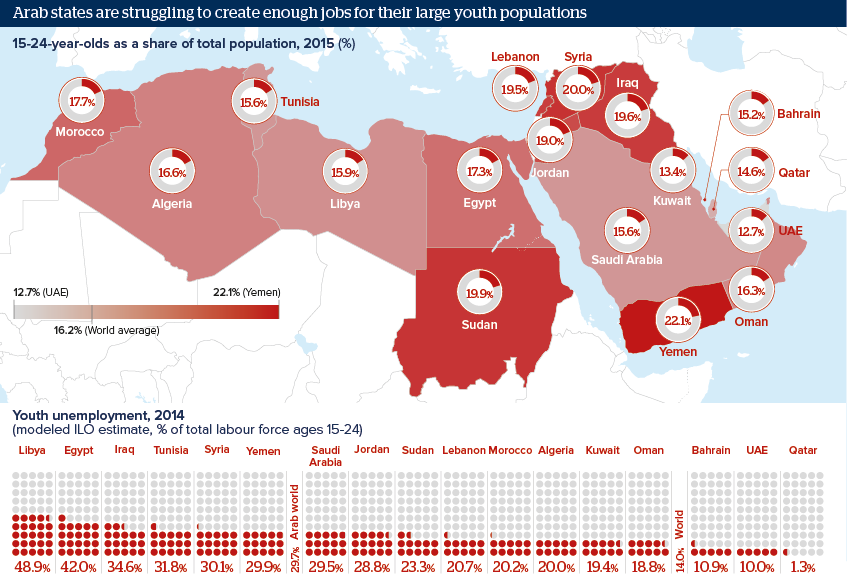Arab states will struggle to reduce youth unemployment
State dominance and high birth rates undermine regional states' ability to create enough jobs for the young
Source: World Bank, UN Population Division, ILO
Outlook
The Middle East and North Africa (MENA) faces a youth bulge at a time when job creation is limited. MENA governments have traditionally tried to reduce unemployment through state jobs. However, today the public sector in many states faces budgetary pressures from cheap oil and rising working-age populations. As a result, young Arabs face staggering unemployment odds: in 2014, 29.7% of 15-24-year-old Arabs were unemployed, more than double the world average of 14.0%.
These budgetary pressures are pushing many states to diversify their economies to stimulate job creation in the private sector. However, these diversification plans may not work -- bureaucratic hurdles and poor investment climates may prevent the creation of enough jobs -- with potentially destabilising effects in the long term.
Impacts
- Gulf states will need to reduce the relative attractiveness of public sector jobs.
- Private sector job creation will require structural reforms to education, infrastructure and business.
- Terrorist attacks on the tourism sector, a key employer in Egypt and Tunisia, will further cut jobs for the young.
- Failure to create enough quality jobs for Arab youth will increase brain drain and migration flows to Europe and the Gulf.
See also
- Middle East socioeconomic trajectories are negative - Jan 3, 2017
- Saudi tourism sector set for rapid expansion - Aug 5, 2016
- Saudi land tax will shake up property sector - Jul 20, 2016
- Arab youth opinion points to instability, reform risks - Apr 27, 2016
- More graphic analysis
